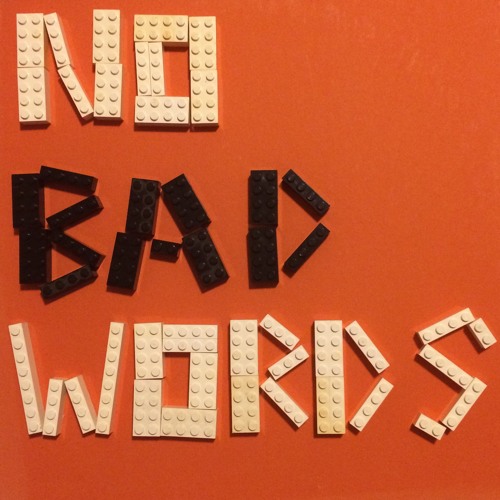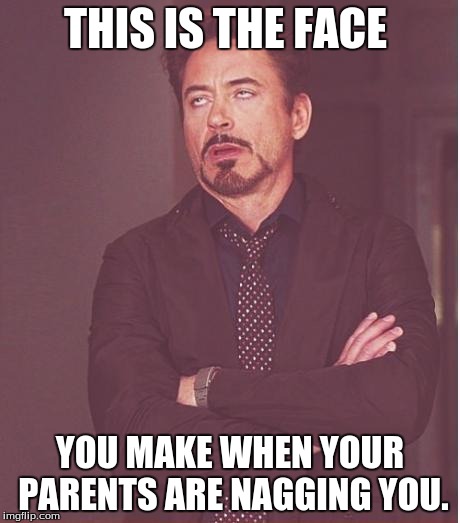
Our children are like sponges. And in today's world it is far too easy to soak up some bad habits. One of those habits is swearing. And in today's digitized culture swearing has unfortunately become a normal part of childhood. The thing is our children are exposed to so many foul words and vulgar content (at a younger age than every before) because it is normalized and readily accessible. It is in their video games, common at school, among friends, on YouTube and other streaming platforms and social services, and prevalent in the shows they watch. At first hearing these words from your innocent child's mouth may come as a shock or end up quite comical. But as your child grows and stretches their wings and meets new people their vocabulary continues to expand. And it can become harder and harder to eliminate unsavory words from your household once it has become the norm.
In the beginning younger children repeat something they've heard just to try it out. They are listening and learning and will repeat words without thought or understanding. Our response during this time matters. If we giggle, laugh, record, or even if we get upset we are teaching them that this word causes lots of emotions in adults. And how could it not? When your first grader uses the F word do you giggle at the absurdity or are you appalled. Once they realize a word has that kind of power over us, these words become very attractive, as a means to get attention. And if we denote it as taboo in our household, they get a big thrill out of using it in secret.
As a child matures their use of bad words change. Sometimes they use it to test boundaries and our response. Other times they use it for the lack of an ability to accurately describe what is going on, as a sort of filler word. They still don't always understand the meaning behind the word, but they are starting to use it in a more purposeful manner. So no matter the age of your Little Warrior here are some good steps to start addressing it and help you kick foul language to the curb.
Stay Calm
Children are curious. They might ask what a word means to understand or just be trying it out. So stay calm, especially for the first encounter of the word. It may be tempting to yell or laugh, but we don't want to continue to reinforce the idea that using this language is appealing. You get to decide if how much to explain. Simply acknowledging that it is an "unkind word some people use that isn't appropriate for children" is low key and straightforward enough that it educates while making the word less appealing to a child who was looking forward to a big reaction. Further discussions, depending on your child's age, can be on how our words affect others, acceptable ways to treat others, and how we want them to view and respond to us. All of this should be done calmly for a first offense. We are educating at this point and it isn't an emotional response.
Lay Out Your Family Standards
It isn't fair to punish if the rules were not clearly defined. So when unkind or foul language begins to pop up in your household make a plan to address it. Each families rules are unique. We have tons of kids tattle on their playmates for using the "S" word for example which simply was "stupid" or "shut up." While these words are unkind and unacceptable in your home and for use among friends, it is important your child understands they are not swear words, but rather ugly or rude words. Words that other families may have normalized. So find where you all stand on the issue. Why does stupid or shut up make you cringe? Or are those words fine and you're only concerned about the more PG-13 expletives? It takes us clearly define our family standards and setting a consistent consequence to beat these kinds of words. And it takes a little bit of eloquence to not call out or belittle other families methods in the process. Something as simple as a swear jar or an extra chore for the offender is punishment enough for the casual user. You may have to get more creative if this is a more long lasting problem in your household.

Consider Acceptable Replacement Words (If Any)
Growing up my mom had an exorbitant amount of creative filler cuss words. From "biscuit eaters" to "shoot a bug" her odd exclamations never cease to amaze me. And although when I was younger I often wish she would cuss like a normal parent and got embarrassed by her word salad under duress I also have to appreciate the creativity she had for not sticking with the tradition "son of a gun". So if filler words are your thing or if your child is needing a replacement word for their new favorite naughty words brain storm together. Just be sure to let your child know that everyone's household is different an they will encounter different rules. "Stupid" or "dumb" may be an acceptable word for your household, but should be used with caution outside of the home out of respect for others.
Alternatives to Attention Seeking
Foul language gets a rise out of people. Whether that attention is negative (from adults) or positive (from their peers) is of little difference to an attention seeking child. All they want to be is noticed and their new vocabulary definitely ensures that. So if you believe your child's use of explicit language is to gain attention you will have to address the underlying reasons to really see a change in vocab. If the child is feeling disconnected from you and is acting out accordingly to catch your notice then begin taking steps to fix that. And if your child is merely using foul language to fit in or get a laugh from their peers it is easy to equip your child with other, more effective and appropriate methods of gaining attention.

Positive Ways of Naming and Handling Emotions
Most young adults use explicit language because they feel unable to adequately describe or convey what they are feeling. Most of this is purely frustration or anger, but sometimes other emotions can come into play. Learning how to recognize and handle our emotions is an invaluable skill set, no matter the age. So rather than accepting your child saying "This is stupid" as they crumple up their challenging homework assignment, guide them through naming what they are feeling and give them more positive and effective ways to deal with that emotion. Praise them when they start to do this on their own and as always make sure you are modeling proper naming and expression of your emotions as well.
Above all it's important to understand that while the world is quick to share foul language with our growing child, the rest is up to us. When we only shut down bad words, our child never gets a chance to understand what was inappropriate or how they can better articulate their feelings. And for our kids to really have a solid understanding of respectful language, they have to know a little about the bad. So take the time to have these proactive and conscious discussions with your child. It's one of those things you won't regret. You've got this Warrior parents!



